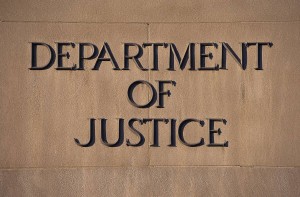 The Justice Department announced Monday that Ford Motor Company has agreed to pay the federal government $365 million to resolve allegations that it violated the Tariff Act of 1930
The Justice Department announced Monday that Ford Motor Company has agreed to pay the federal government $365 million to resolve allegations that it violated the Tariff Act of 1930
Ford did this by misclassifying and understating the value of hundreds of thousands of its Transit Connect vehicles, according to officials.
The settlement resolves allegations that Ford devised a scheme to avoid higher duties by misclassifying cargo vans.
The claims resolved by this settlement are allegations only. There has been no determination of liability.
Specifically, the government alleged that from April 2009 to March 2013, Ford imported Transit Connect cargo vans from Turkey into the United States and presented them to U.S. Customs and Border Protection (CBP) with sham rear seats and other temporary features to make the vans appear to be passenger vehicles.
 These temporary rear seats were never intended to be, and never were, used to carry passengers.
These temporary rear seats were never intended to be, and never were, used to carry passengers.
Rather, the government alleged that Ford included these seats and features to avoid paying the 25% duty rate applicable to cargo vehicles, officials stated.
By classifying the vans as vehicles for the transport of passengers, Ford instead paid a duty rate of just 2.5%. Ford submitted entry papers to CBP declaring these vehicles as classifiable under tariff heading 8703 as “Motor cars and other motor vehicles principally designed for the transport of persons.”
After customs clearance, each Transit Connect vehicle was immediately stripped of its rear seats and returned to its original identity as a two-seat cargo van.
 The settlement also resolves allegations that Ford avoided paying import duties from April 2009 through August 2013 by under-declaring to CBP the value of certain Transit Connect vehicles.
The settlement also resolves allegations that Ford avoided paying import duties from April 2009 through August 2013 by under-declaring to CBP the value of certain Transit Connect vehicles.
“Importers have an obligation to truthfully declare the nature of their products and pay the duties that are owed,” said Principal Deputy Assistant Attorney General Brian M. Boynton, head of the Justice Department’s Civil Division. “The government will not permit companies to evade duties by adding sham features to their products and then misclassifying them.”
“This settlement, which is one of the largest customs penalty settlements in recent history, demonstrates that U.S. Customs and Border Protection will pursue even the largest companies to ensure that all importers follow the rules; our intent is to enforce the customs laws fairly, which means that non-compliance is not an option for anyone,” said Senior Official Performing Duties of the Commissioner Troy A. Miller of CBP.
Attorneys Beverly Farrell and Justin Miller of the Civil Division’s International Trade Field Office and Claudia Burke, Joshua Kurland, Patricia McCarthy and Frank White of the Civil Division’s National Courts Section handled this matter.

